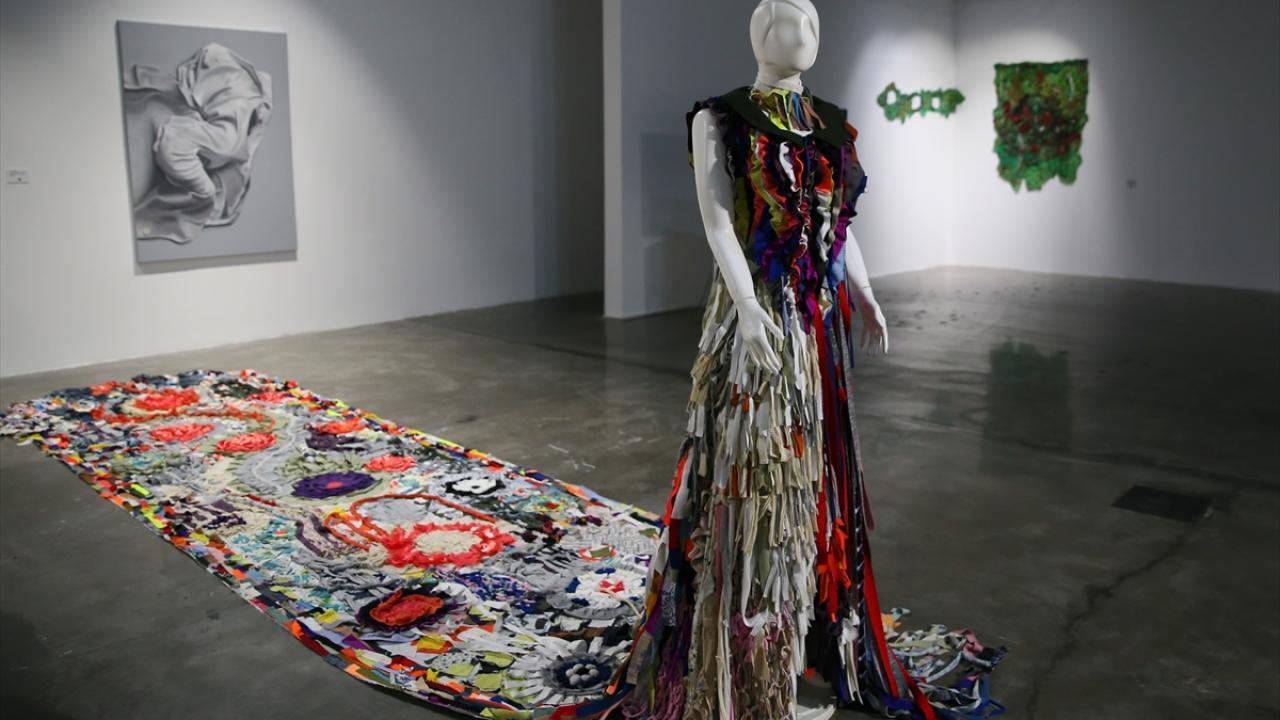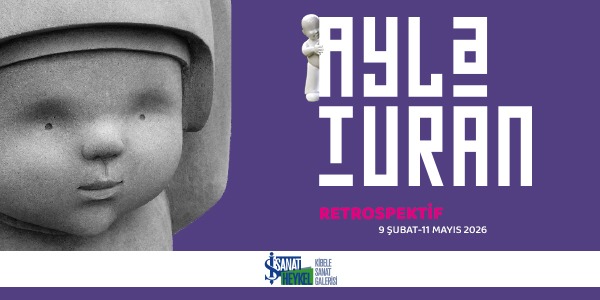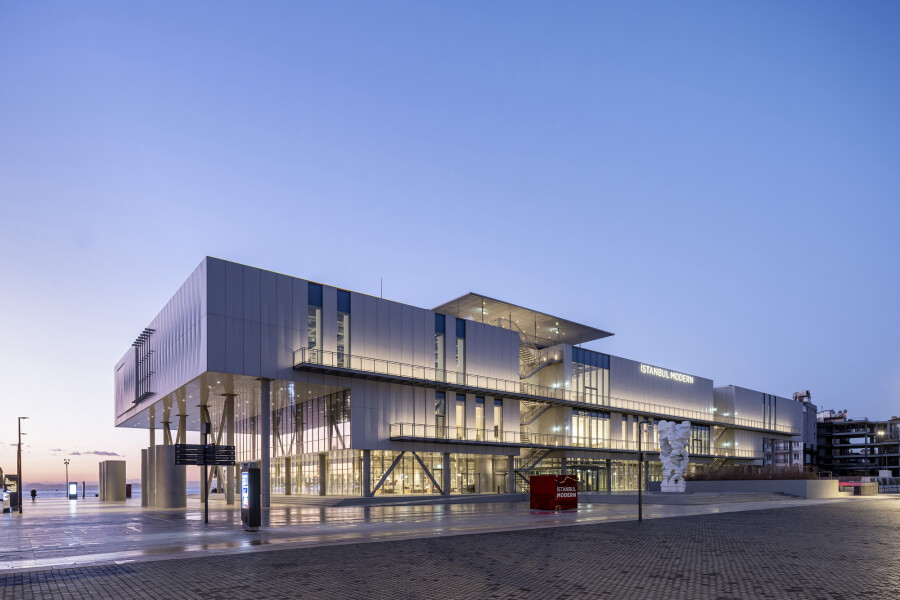Nihat Özdal has made significant contributions to arts and culture scene over the years through his books, exhibitions and cultural events. Unlike others, he avoids self-promotion and instead focuses on the value added by every task he undertakes.
Özdal, who was born in Halfeti, specializes in interdisciplinary studies in the fields of contemporary art, gastronomy, literature, scents, music, and museology. This year, he is curating an international Textile Biennial in Izmir with the same marketing-free approach. The textile biennial he is curating is an extensive exhibition with numerous exhibits in a challenging field. This is the first time a textile biennial is being held in Turkey.
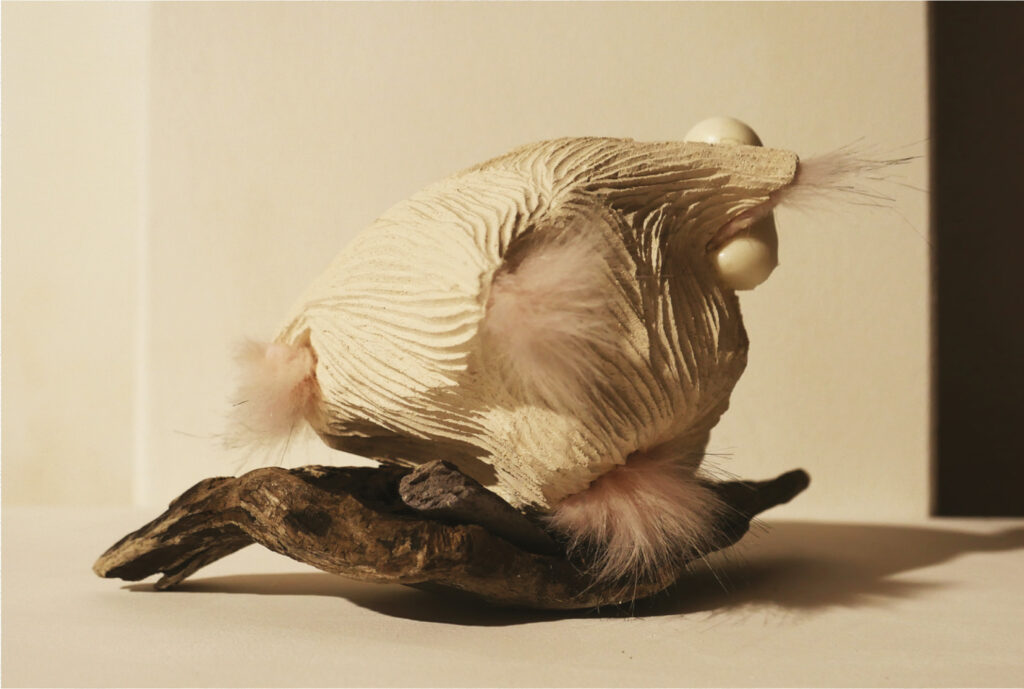
18x33x27cm 2023
Farbrics are essential part of our everyday lives, surrounding us from birth to death. The uses of fabrics are so diverse that it is a laborious effort to deal with the productions that combine such a widely used material with art. Izmir International Fair hosts the International Textile Biennial held for the first time in Turkey. The exhibition, which opened on September 4, can be seen at the Atlas Pavilion. Textile Biennial, curated by writer and artist Nihat Özdal, with 57 participants from 17 different countries; It will last until November 24.
The theme for the biennial is Slow Fabric, chosen to reflect the messages that Izmir, the world’s first Cittaslow metropolis, will convey in the fields of art and textiles. This is the first biennial in Turkey that focuses solely on textiles; the event brings together artists who work with textiles and those who use textiles as a material.
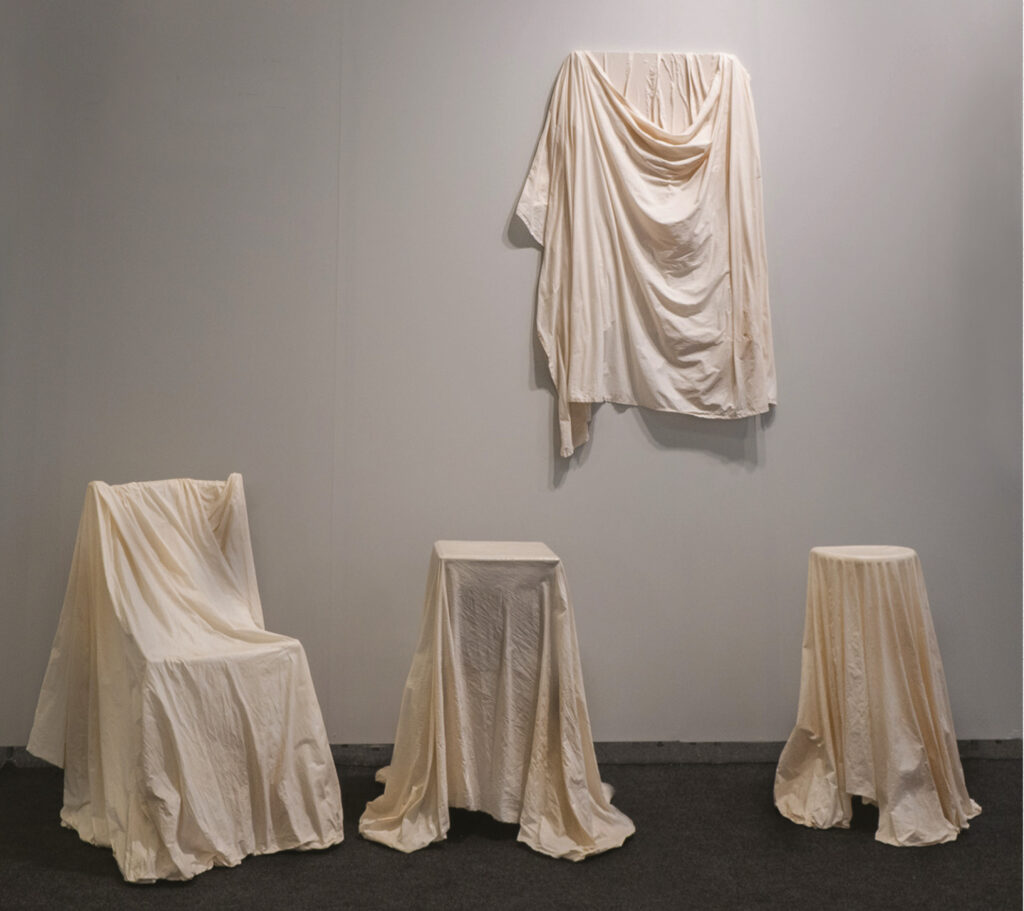
As with any industry, the textile sector’s emphasis on speed has led to severe environmental damage. The biennial aims to promote awareness about this issue and offer new perspectives on fabric, which is an integral part of our daily lives. Fabric is used as a metaphor to explore different themes and messages. Some of the biennial venues are historical buildings listed in UNESCO World Heritage candidate settlements such as Kemeraltı.
The biennial is hosting 57 artists from around the world, including countries like Argentina, the United States, South Korea, the Netherlands, Spain, Greece, Serbia, Italy, the United Kingdom, Hungary, Germany, Iraq, Cyprus, Ukraine, Syria, Iran, and Ireland.
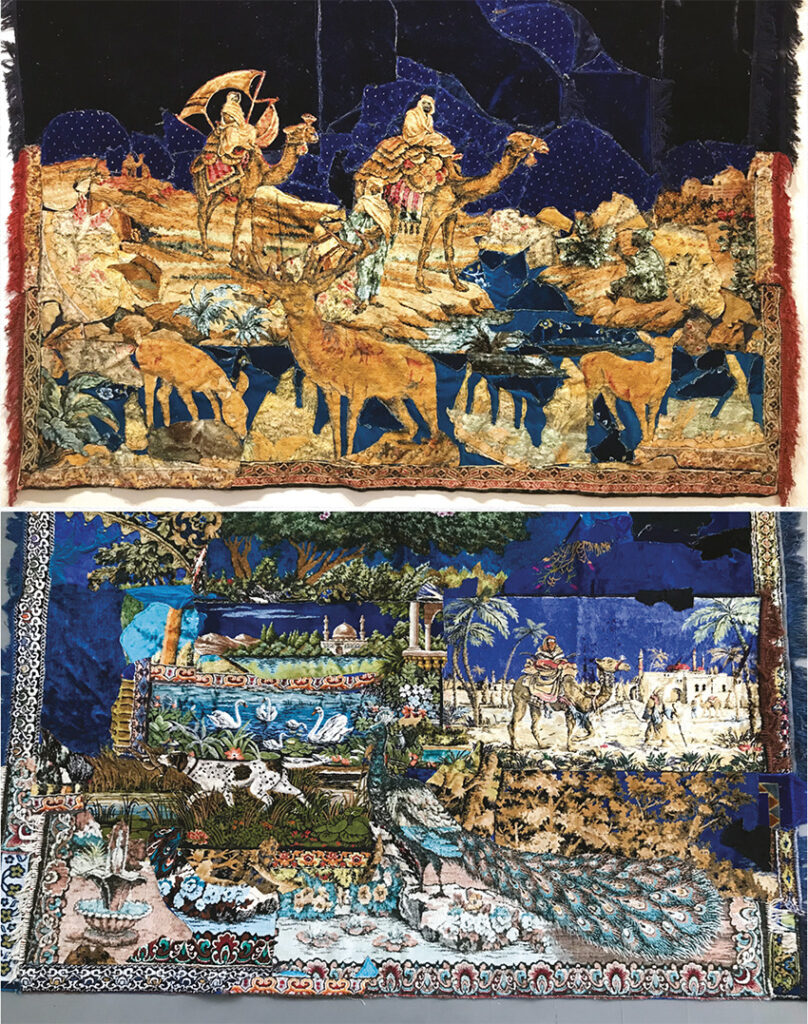
Izmir has a rich history of weaving that dates back to 7,000 years according to archaeological records. It is home to several prominent textile companies, fashion brands, and textile fairs, making it one of the cities with the highest employment rate in this field in Turkey. The works of weaving are displayed at various locations including the Atlas Pavilion, the Pakistan Pavilion
in Kültürpark, the Agora Ancient City, the Etz Hayim Synagogue,
and the Alga Chocolate Factory. The exhibition has been organized by curator Nihat Özdal under 3 main themes, which are distributed across various Biennial venues. The works presented to the visitors revolve around the ideas of Slowness and Time, Touch and Emotion, and Connection and Sustainability.
The discovery of 8 thousand-year-old weaving materials at Ulucak Höyük in Izmir suggests that the city is the oldest textile center in history. Fabrics contain a lot of information about societies’ lifestyles, art, mythologies, and belief systems. It’s interesting to note that humans are sent off to the other world by being wrapped in a fabric, just as they are brought into this world wrapped in one. Fabric is the only material that remains with us from birth to death. According to Özdal, Izmir continues to be an important center in the textile industry, with a strong archaeological image in textile history, and many fairs and companies operating in this field.
The International Textile Biennial provides a platform to explore the themes of slowness, touch, and connection in textile art. The slow textile movement is a philosophy that is rapidly gaining popularity today. This Biennial offers an excellent opportunity to delve into the theme of slowness and connection in textile art, and for the audience to experience the profound power of textiles.
The slogan of the biennial is “Slow Down, Focus on the Touch!” The handcrafted and meticulously created works of the artists at the Biennial will serve as a reminder to the audience of the significance and impact of textiles. The selection that Özdal brought together within this framework includes works by many artists producing in this field, from Vahap Avşar to Neriman Polat.





